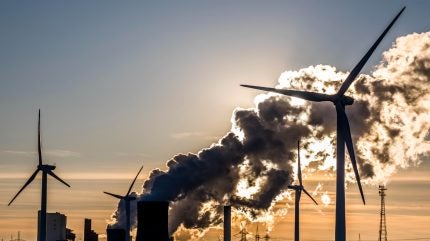
The long-term climate targets of 30% of the biggest corporate emitters worldwide are aligned with the Paris Agreement goal of limiting global warming to 1.5 degrees, according to research published on Tuesday.
A report from the Transition Pathway Initiative (TPI) Centre, based at the London School of Economics, found that the share of companies with long-term – by 2050 – targets that are aligned has increased from 7% in 2020.

Discover B2B Marketing That Performs
Combine business intelligence and editorial excellence to reach engaged professionals across 36 leading media platforms.
“However, the credibility of long-term climate ambitions is often unclear, with many companies lacking intermediate targets and clear quantifications of the key elements of their climate strategies,” the report said.
The ‘State of Transition Report 2024’ looked at the progress of more than 1,000 of the world’s highest-emitting public companies, collectively valued at about $39 trillion.
Of these companies, the sectors found to be most aligned with 1.5C were diversified mining, steel, and electricity, at 50%, 46% and 41%. The least aligned were food producers and oil and gas companies, at 8% and 6%.
By region, European, Australasian and Japanese companies’ climate targets were found to have the highest alignment with 1.5C or below 2C by 2050, at 66%, 64% and 56%.

US Tariffs are shifting - will you react or anticipate?
Don’t let policy changes catch you off guard. Stay proactive with real-time data and expert analysis.
By GlobalDataTPI chair David Russell said the analysis shows that many companies in high-emitting sectors are failing to implement adequate transition processes and targets.
The findings also point to a clear interdependency between local climate policy and the transition progress of individual companies, he added.
“Investors therefore need to redouble their efforts to engage with both companies and policy makers to encourage appropriate and urgent responses to the systemic risk that climate change poses.”





